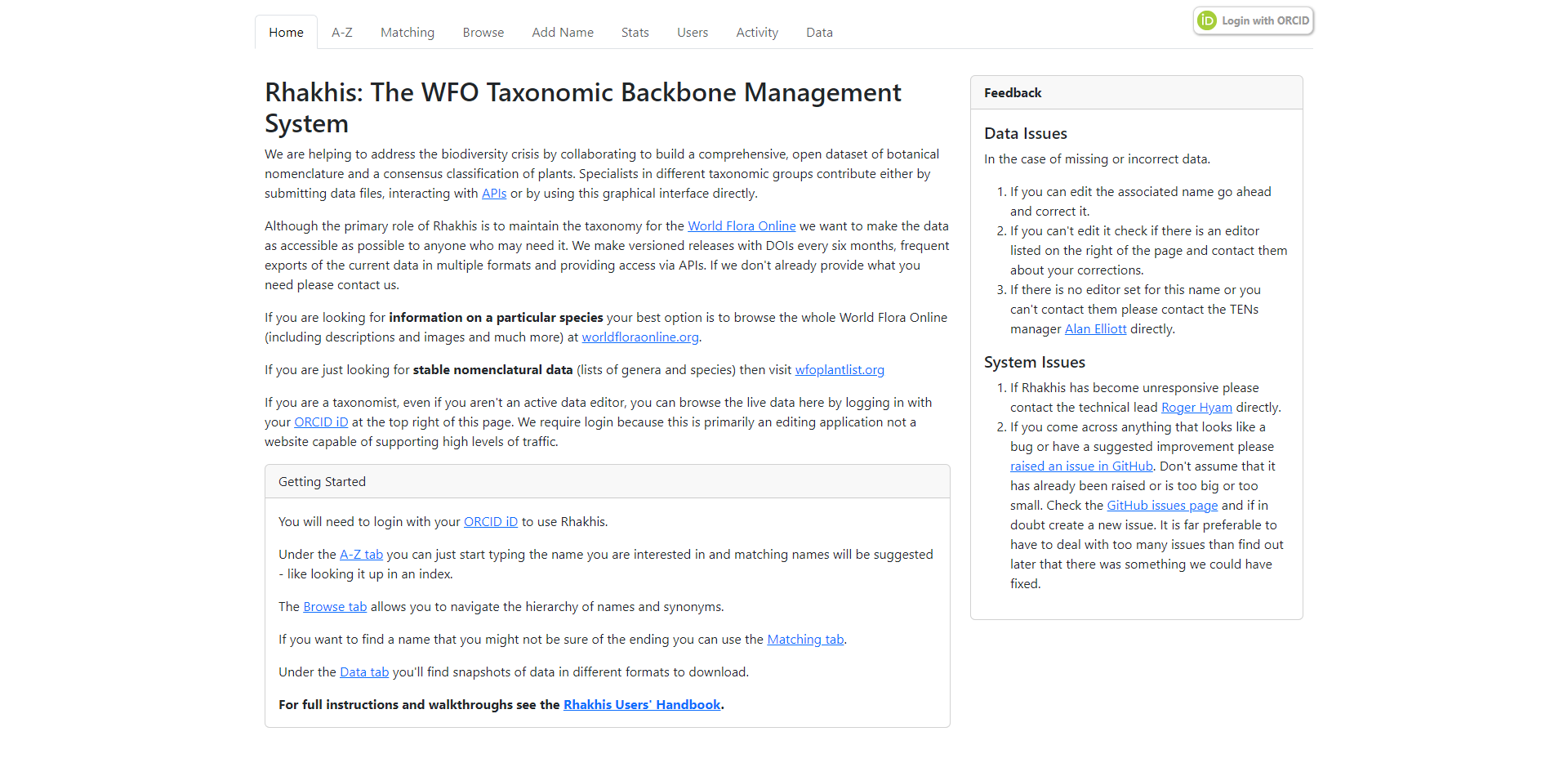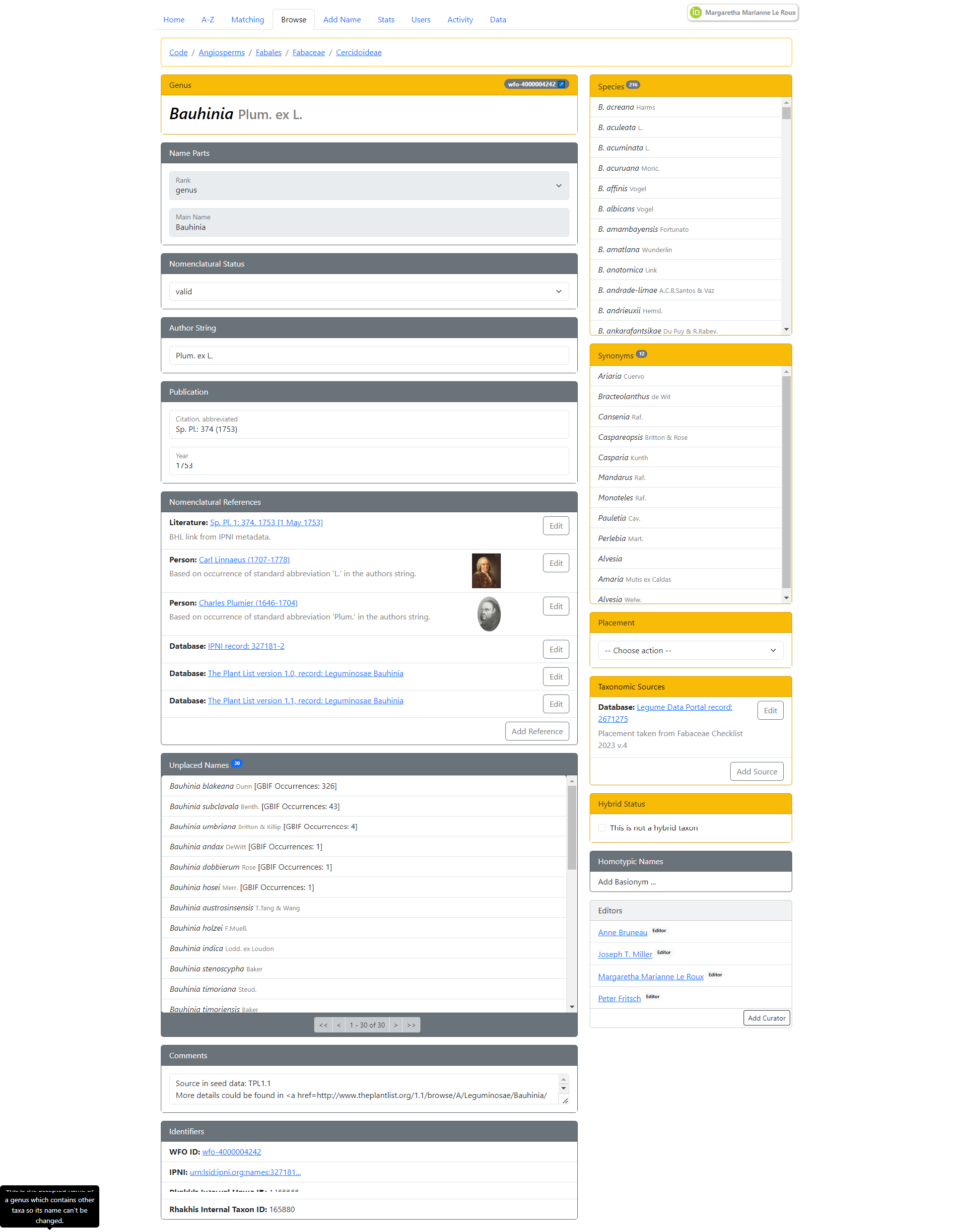The Taxonomy Working Group has bid farewell to cumbersome Excel spreadsheets in favor of an innovative online tool, Rhakhis, modernizing the process of editing the consensus legume checklist. This transformation marks a significant milestone for the checklist and its way forward.
Traditionally, the Taxonomy Working Group navigated a complex web of activities and communication between taxon experts, tribe or subfamily coordinators, and the World Checklist of Vascular Plants editor to capture name corrections in the checklist. However, the tide has turned with the advent of Rhakhis, a names editor developed by the World Flora Online team. Rhakhis empowers taxon experts to easily and simultaneously update and maintain the checklist online. This innovative method of name editing has been tested and subsequently implemented by the Taxonomy Working Group as one of three methods for editing the legume checklist.
Rhakhis’s interface comes with instructions and demonstrative videos, providing taxon experts with guidance on how to effectively utilize the tool. Moreover, a sandbox environment is available, enabling users to gain hands-on experience without the risk of introducing inadvertent errors.

To initiate the name editing process, taxon experts must log into the system using their ORCID credentials. Once authenticated, they are assigned to specific subfamilies within the legumes, granting them the authority to make edits and updates to taxonomic records. This seamless integration of expertise promises to enhance the accuracy and efficiency of the legume checklist.

To foster efficient communication and coordination, taxon experts are encouraged to register their interest in participating that will inform the coordinators to assign editing rights to experts in Rhakhis.
The introduction of Rhakhis promises to usher in a new era of precision and collaboration in the maintenance of the community endorsed consensus legume checklist, ultimately benefiting the global scientific community and the broader understanding of plant biodiversity.

